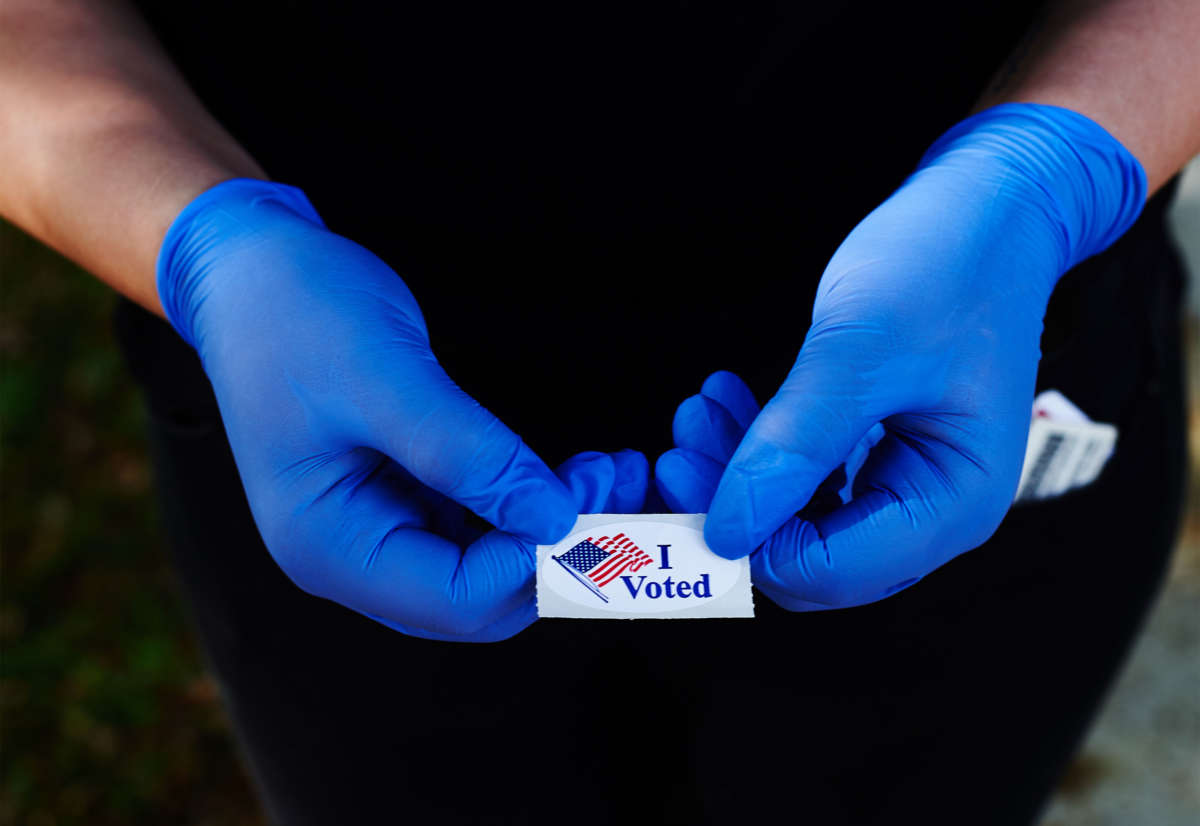Part of the Series
Voting Wrongs
Did you know that Truthout is a nonprofit and independently funded by readers like you? If you value what we do, please support our work with a donation.
A U.S. district court judge for the state of Florida made it evident on Wednesday in no uncertain terms that he intends to strike down or significantly alter the state’s restrictive rules process for restoring the right to vote for individuals with felonies on their records.
In a 2018 statewide constitutional referendum, Florida residents overwhelmingly supported a measure that would restore voting rights to such individuals. But the following year, the Republican-controlled legislature passed a law requiring those with felony records to pay fees due to the state before their suffrage rights could be restored.
Last October, U.S. District Judge Robert Hinkle placed an injunction on that law, favoring 17 plaintiffs who said their constitutional rights were being violated by the requirement to pay fees. The state appealed his injunction to the 11th U.S. Circuit Court of Appeals, which upheld Hinkle’s injunction in February, elaborating that the law indeed violated the Equal Protection Clause of the 14th Amendment to the U.S. Constitution, due to the fact that the 2019 law “punishes those who cannot pay more harshly than those who can.”
The case returned to Hinkle’s courtroom as a result, where, on Wednesday, he made clear that he was not going to change his mind on the matter. Hinkle’s comments on the bench suggested he viewed the law passed by the state legislature last year to be equivalent to a poll tax.
“The Legislature plainly intended that you had to pay the money in order to vote, and if you didn’t pay the money you didn’t vote,” the judge said.
While recognizing the 2019 law didn’t use racist language in an overt manner, Hinkle noted that there was “clearly a racial impact” with regard to the law because a higher proportion of people with felonies on their record in Florida are Black.
In fact, the state itself admitted that it identified at least 85,000 voters who might be affected by the Republican-passed law. That number, however, is considered by many to be a conservative estimate. A study conducted by University of Florida professor Daniel Smith and the ACLU demonstrated that as many as 775,000 individuals might not be allowed to vote if the statute is upheld.
Felony disenfranchisement — a practice that some states across the nation employ to limit the ability of those with felony records to participate in the democratic process — affects around 6 million Americans, according to figures from The Sentencing Project. Notably, it’s a rule that disproportionately affects people of color, with one out of every 13 Black Americans being negatively affected, versus one out of every 56 for non-Black voters in the U.S.
The impending decision by Hinkle will likely have an impact on statewide and federal elections in Florida later this year. In 2016, the presidential race in Florida between Donald Trump and Democratic candidate Hillary Clinton was decided by just 112,911 votes — a margin of voters several times smaller than what the University of Florida’s study suggests will be positively impacted with the right to vote if Hinkle’s judgment is allowed to stand.
Press freedom is under attack
As Trump cracks down on political speech, independent media is increasingly necessary.
Truthout produces reporting you won’t see in the mainstream: journalism from the frontlines of global conflict, interviews with grassroots movement leaders, high-quality legal analysis and more.
Our work is possible thanks to reader support. Help Truthout catalyze change and social justice — make a tax-deductible monthly or one-time donation today.
